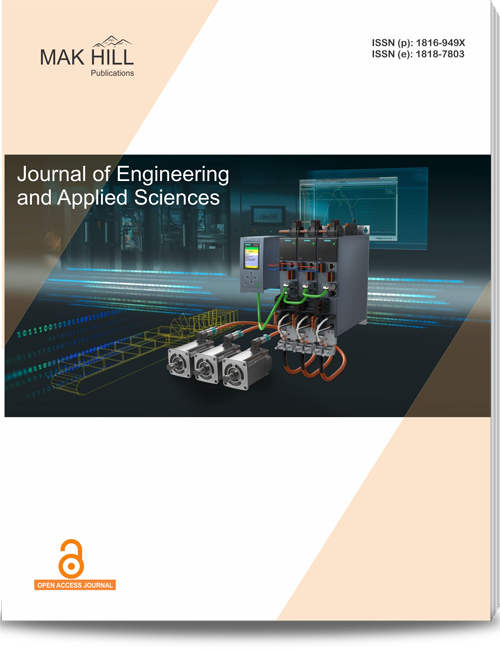
Journal of Engineering and Applied Sciences
ISSN: Online 1818-7803ISSN: Print 1816-949x
Abstract
This research aims to investigate the capillary transport properties of concretes and natural stones as to be used as an absorber plate material of solar distillation equipment. Macro scale photograph and porosity test has been doneto determine the characteristics ofthe porous medias. In order to analyze the transport properties, a sorptivity test was done in this study. Two different types of concrete was filled with Lumajang’s sands and ferrous sands as the fine aggregates. Both types of concrete were then divided with two different particle size which were 0.125 and 0.250 mm in diameter, respectively. A natural stone was used as a comparison materials. The results taken from macro scale photographs showed that increasingsize of pore holes with the larger aggregates particle’s size in both types of aggregates. The highest porosity was found in concrete with ferrous sand with aggregate size of 0.250 mm specimen with a value of of 57.77%. The highest porosity was gained in concrete with Lumajang sand with aggregate size of 0.250 mm specimen with the amount of 0.224%. The largest volume of absorbed seawater and sorptivity coefficient was also obtained in concrete with Lumajang sand with aggregate size of 0.250 with the value of 8.05 mL and 9.58×10–5 m/sec0.5, respectively. However, concrete with ferrous sand with aggregate size of 0.250 has the highest mass flow rate with the value of 3.25×10–7 kg/sec. The interconnectivity between the channels also has a significant role in mass flow rate value which occurred in natural stone specimen.
How to cite this article:
Nova R. Ismail, S. Sudjito, Denny Widhiyanuriyawan and Widya Wijayanti. The Influence of Pores Size and Type of Aggregate on Liquid Mass Transfer in Porous Media.
DOI: https://doi.org/10.36478/jeasci.2018.7171.7178
URL: https://www.makhillpublications.co/view-article/1816-949x/jeasci.2018.7171.7178